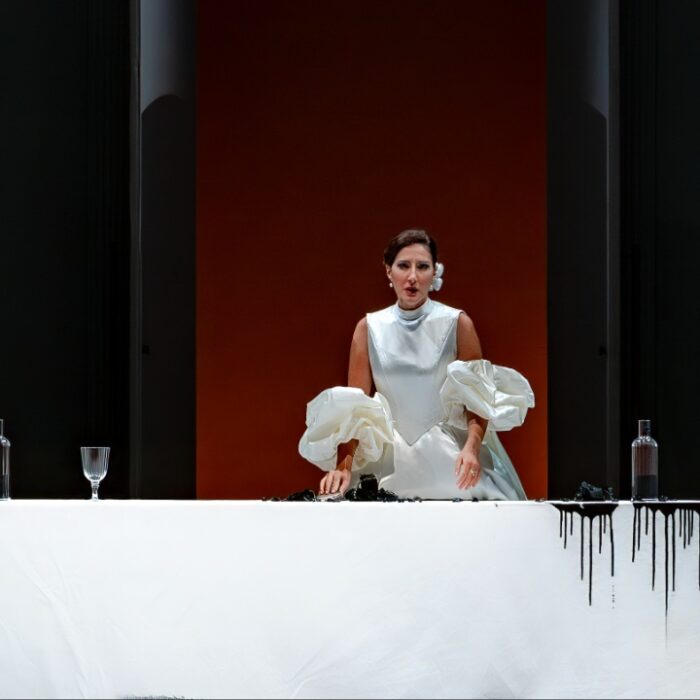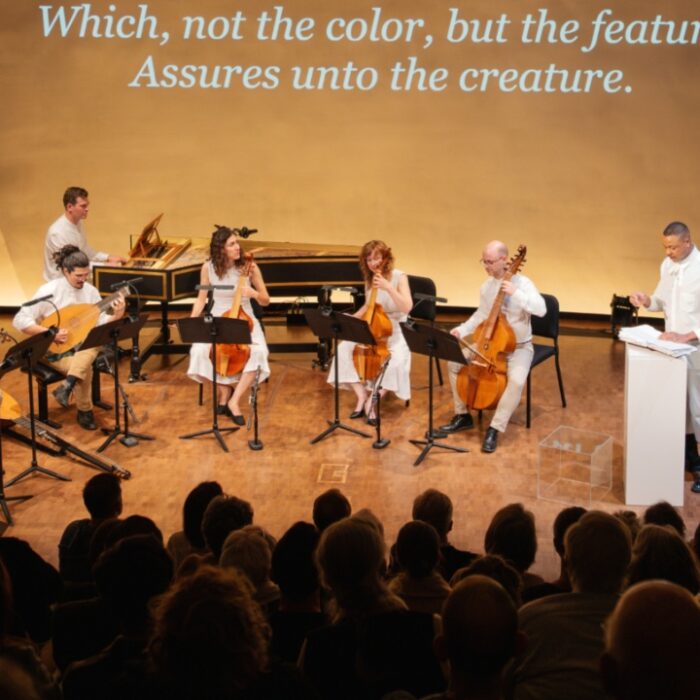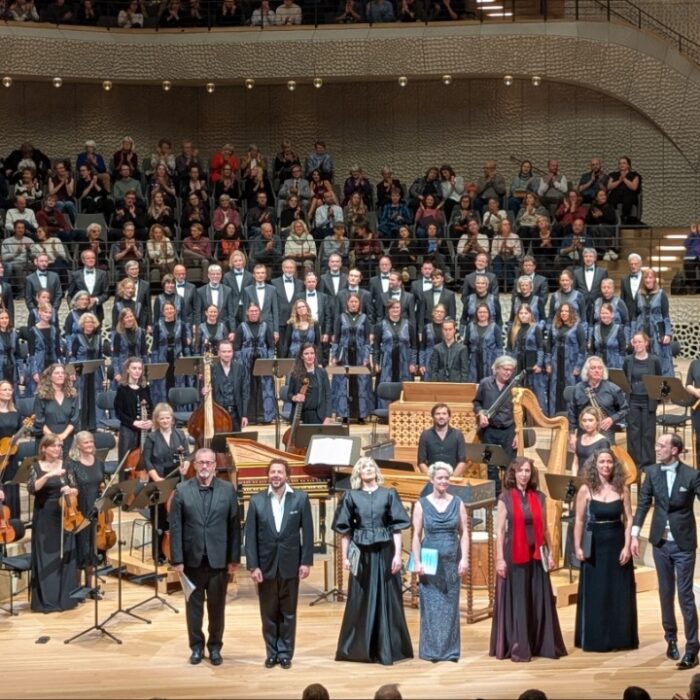
CD Review: Jonathan Tetelman’s ‘The Great Puccini’
By Bob DieschburgJonathan Tetelman’s “Arias” ranks, to who currently writes, among the most sensational debuts in recent years. With a program tailored to his velvety and, at times, dusky tenor voice it made the heavy hitters from both the French and Italian repertoires sound as fresh and untainted as if one had heard them for the very first time.
Yet its successor, “The Great Puccini,” does not quite hold the promises which “Arias” had announced in so magniloquent a way. Instead, it is a very solid display of vocal prowess which, psychologically, does little to differentiate between individual roles; nor does it indulge the melodramatic sentiment that a Puccini recital may, for better or for worse, have called for.
A Puccini Anthology
The track list sports the usual suspects, including “Che gelida manina” and with “Nessun Dorma,” the Puccini anthem per se. However, one might be pleasantly surprised to find ensembles like “Io so che alle sue pene” and from “Il Tabarro,” the scene and duet of “O Luigi, Luigi… Dimmi, perché gli hai chiesto di sbarcare a Rouen.”
The release opens with “Donna non vidi mai” which perfectly suits the lyrical inflections of Tetelman’s voice. It is warm, mellifluous, and with his rendition Tetelman sets high expectations for the remainder of the album.
However by the next track, “Nessun dorma,” some mannerisms become apparent which, for want of a better explanation, one might most readily associate with Pavarotti’s stylistic idiosyncrasies, especially during the last decade of his operatic career. The tremolo on “che ti fa mia” with its open vowels is a case in point.
“Parigi! È la città dei desideri” from “La Rondine” is a welcome and unusual addition to the mainstream set of arias. It emphasizes the lyrical core of Tetelman’s voice which I would caution against venturing too early into the heroic or dramatic repertory of “Turandot;” in its high register, when pushed to the final “vincerò,” the strain to the voice is more pronounced than in comparatively demanding pieces from “Arias,” though it is impeccably concealed.
“Hidden Harmony”
With the excerpts from “La Bohème,” including the quartet from Act three, and “Tosca,” one is at the center of the Chilean-American tenor’s art. His Cavaradossi is muscular, virile, and tender at the same time.
In “Recondita armonia” he is in full technical command of the mezza voce and diminuendo. It likely stands as the most successful aria in this present release. This is thanks mostly to his bold phrasing and use of rubato which together set “Recondita armonia” apart from the more metronomically strict rendition of, for instance, “Che gelida manina.”
In “E lucevan le stelle” Tetelman is not helped by the unwonted stiffness of Carlo Rizzi at the helm of the Prague Philharmonia which, regrettably denies the tenor a chance to expand on the wonderfully sustained phrase of “disciogliea dai veli.” For a better measure of Tetelman’s dramatic skills, buffs may refer to a 2022 performance of “Tosca” at the Theater an der Wien, available in parts on YouTube.
From “La Fanciulla del West” Tetelman sings the arioso of “Quello che tacete” as well as the customary “Ch’ella mi creda.” At the intersection between lyrical and dramatic, the role of Dick Johnson suits his voice’s mellow core as Tetelman conveys both the fragility and the heroism of his character’s tortured identity.
The album concludes with a supreme rendition of “Torna ai felici di;” here, like in “Recondita armonia,” Tetelman retrieves incomparable ease of phrasing while demonstrating an acute sense for dramatic timing.
In Anticipation of More
Overall, however, “The Great Puccini” does not reveal new facets of the artist Tetelman. While his vocal physiognomy remains outstanding, his psychological insight into his many roles remains relatively limited and his technical palette, including the sustained use of the mezza voce has receded when compared to “Arias.”
Interestingly, Deutsche Grammophon has not failed to engage a very strong supporting cast, notably Theodore Platt and Federica Lombardi who features as a highly sympathetic Mimì. Carlo Rizzi, on the other hand, lacks a lot of verve and, as in “E lucevan le stelle,” does not do the tenor any favors in terms of melodramatic expanse.
It remains that Jonathan Tetelman is probably one of the most luxuriously gifted tenors of the current generation and “The Great Puccini,” if nothing else, wets the appetite for his first complete opera recording – by Puccini or by somebody else.


